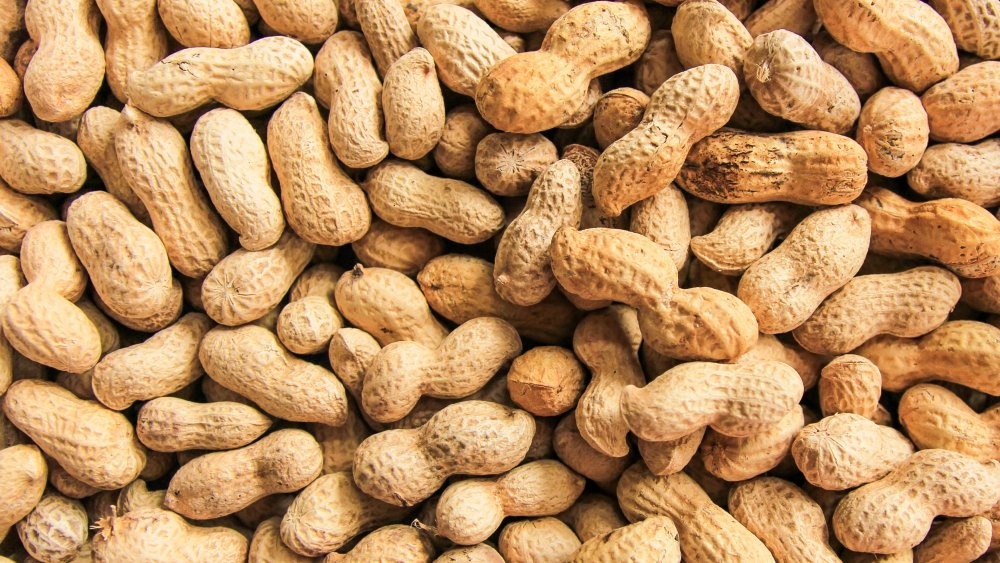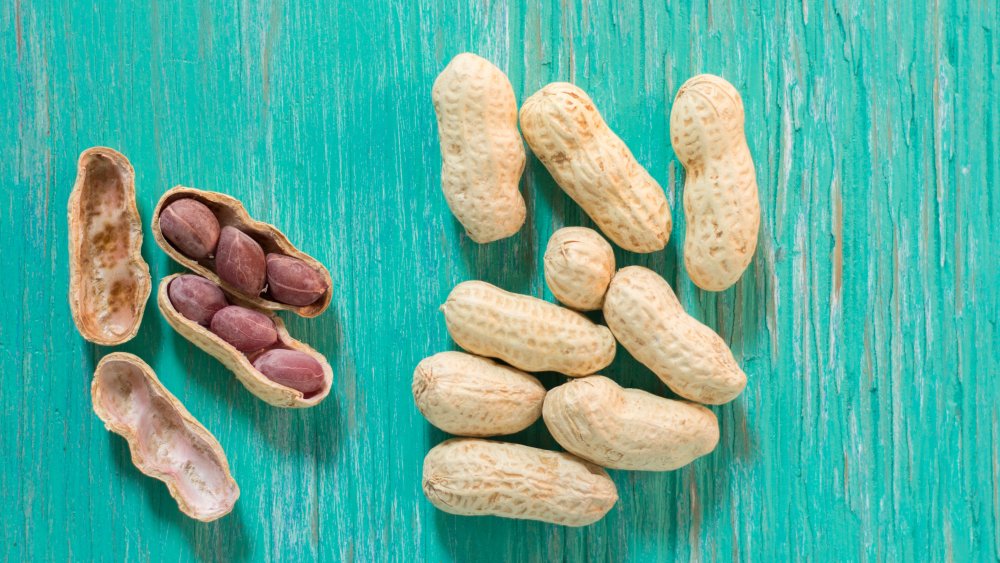The Real Reason Peanuts Aren't Actually Nuts
There are a lot of misnomers in the food world. For example, strawberries aren't actually berries, Danishes are actually Austrian (via We Are Not Foodies), and if you ever see Bombay Duck on a menu at an Indian restaurant, know that it's actually a fish (via BBC).
Peanuts can be added to the list of foods with identity issues as well. Although "nut" is in the name, they aren't really nuts at all and are instead legumes, akin to peas, beans, or soybeans (via Harvard University). The majority of legumes grow on vines or shrubs, but peanuts are slightly different in that they are grown underground.
True (otherwise known as tree) nuts are dry and hard and don't split over time to expose the seed inside (via Britannica). Hazelnuts, chestnuts, and acorns are considered to be true nuts. Walnuts, coconut, and Brazil nuts, however, are not.
The nutritional benefits of peanuts
Peanuts, however, have similar nutritional benefits to tree nuts. They both contain healthy unsaturated fat and are high in fiber. They both contain vitamins and minerals. Peanuts, for example, are high in vitamin B3, vitamin B9, manganese, copper, and are one of the richest dietary sources of biotin (via Healthline). Peanuts are low in carbohydrates and high in protein and fat — although the fats are the healthy kind—mono- and polyunsaturated fats.
Both peanuts and true nuts may be helpful for heart health as well. A number of studies found that people who consume peanuts or tree nuts frequently have lower chances of having serious heart problems.
If you've ever thought that peanut soup, an extremely popular menu item in Jamaica and parts of West Africa, was an odd dish, perhaps knowing that peanuts are actually in the same family as lentils will make it seem a bit more logical (via Feel Good Foodie).

